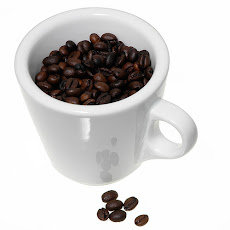
Don’t let these commonly misused/misspelled words and phrases trip you up
By Mark Terence Chapman
Here are some more words and phrases that are commonly misused or misspelled. A conscientious writer should use these correctly. More importantly, using these words/phrases correctly will reduce the odds of your writing being rejected by an editor due to excessive errors. (Editors don’t want to waste time on pieces that require an inordinate amount of their time to clean up.) Even if you write only business reports and emails, you still wouldn’t want people chuckling over your misuse of the English language, would you?
Just as importantly, using the correct word can better convey the nuance you desire. As Mark Twain once said, “The difference between the right word and the almost right word is the difference between lightning and a lightning bug.”
Pour(ed) vs. Pore(d)
Wrong: He poured over the manual for hours.
Right: He pored over the manual for hours.
To pour over is to spill a liquid or loose particles onto something. To pore over is to read or study intently or with a steady gaze, or to meditate over something.
Fort vs. Forte
Wrong: Singing is not my fort.
Right: Singing is not my forte.
A forte (FOR-tay) is someone’s strong point, something at which he or she excels. It is often mispronounced fort, which leads to the misspelling.
Gape(ed) vs. Gap(ped)
Wrong: His jacket gaped open.
Right: His jacket gapped open.
To gape is to open wide, as with an open mouth. In this context, to gap is to come open or to show a gap.
On route vs. En route
Wrong: Don’t worry. The ambulance is on route.
Right: Don’t worry. The ambulance is en route.
The French phrase en route (pronounced ahn-ROOT) means on the way or along the way. Because of the French pronunciation, it is often misspelled as on route. (The Anglicized pronunciation en-ROOT is also correct.)
Solicit vs. Elicit
Wrong: I’ve tried to solicit a reply, to no avail.
Right: I’ve tried to elicit a reply, to no avail.
To elicit is to draw out, bring forth, evoke, or provoke a response. To solicit is to entreat, invite, request, or petition, as well as to offer sex for money.
Effective vs. Efficient
Right: We acquired the merchandise in an effective manner.
Right: We acquired the merchandise in an efficient manner.
Right: We acquired the merchandise effectively and efficiently.
Each of the above examples could be correct, depending on the nuance you are trying to convey. Effective means adequate to the task of accomplishing one’s goal—making a sale, or winning a battle, for example. On the other hand, efficient means performing or functioning in the best possible manner and with the least amount of waste.
Whereas an army might be effective at winning a battle, it might do so at the cost of thousands of troops. Another army might be equally effective, but more efficient at winning the same battle, by sending a small strike force behind enemy lines to capture the opposing general, with few—if any—losses.
Appraise vs. Apprise(d)
Wrong: Keep me appraised.
Right: Keep me apprised.
Appraise means to assess the value of an asset or to estimate the quality or importance of something. Apprise means to inform, advise, or give notice to.
Past vs. Passed
Wrong: The passed is the passed.
Right: The past is the past.
Past means earlier. It’s used to describe the passage of time. Passed is the past-tense of pass, which has a number of meanings, including to go by (pass a truck on the highway), skip or ignore (pass through the town without stopping), endure (thus passed a thoroughly unpleasant hour), complete successfully (pass a test), transfer or transmit (pass it on, pass the ball), etc.
Premium vs. Premiere
Wrong: This is our Premium offering.
Right: This is our Premiere offering.
Premium, in this context, means of exceptional quality or greater value than others of its sort. But it can also mean greater cost. (“Quality comes at a premium.”) That’s probably not the message the advertiser wished to convey in the first example. Therefore, the second one is probably better. Premiere means initial, principal, or leading. So, in the above, example, it means top-of-the-line or best.
Metaphor vs. Analogy vs. Simile
Right: The play was a metaphor for life.
Right: The internal combustion engine is a good analogy for how the human heart works.
Right: An apt simile is this: His home-made helicopter flew like a lead balloon.
A metaphor is something that represents or symbolizes something else figuratively. An analogy compares the similarities of two things. A simile, on the other hand, compares the dissimilarities of two things. The comparison usually is introduced with words such as like or as. These three terms are confused so often—especially metaphor and analogy—that it’s important to understand their differences and how they should be used.
If you’ve ever been confused about any of these words or phrases, tack this column to the wall by your desk. It’ll help you avoid similar errors in the future.
Mark Terence Chapman writes in various genres: He’s a poet, short story writer, novelist, humorist, and even a nonfiction writer tackling computer topics and nanotechnology. To find out more about Mr. Chapman, please visit his Web site at: http://tesserene.com Click here or his blog at: http://tesserene.blogspot.com.Click here
























No comments:
Post a Comment